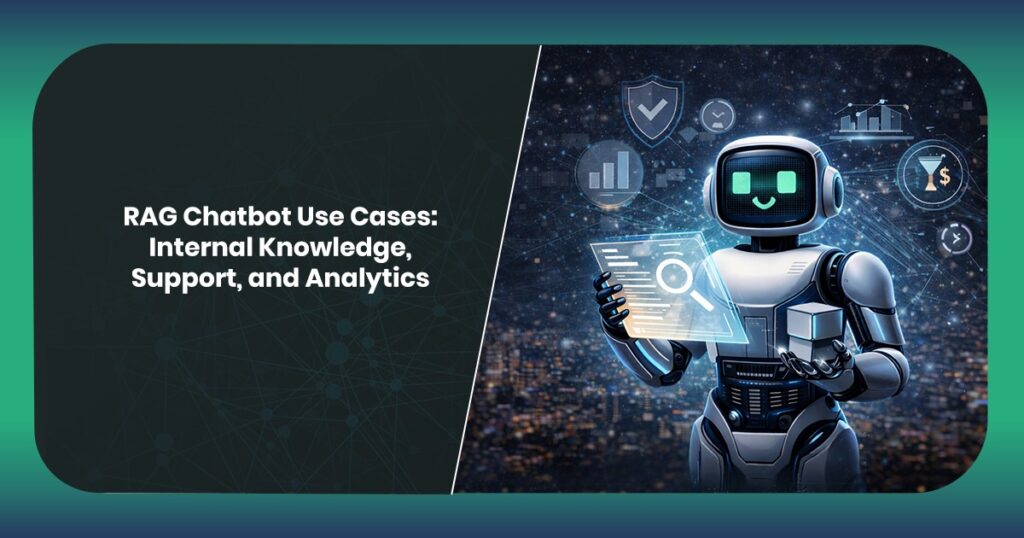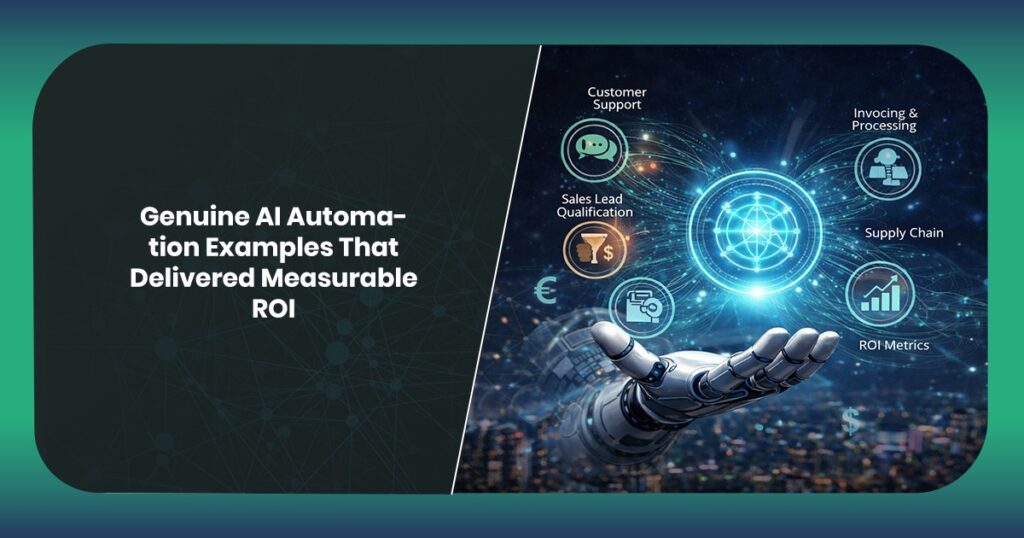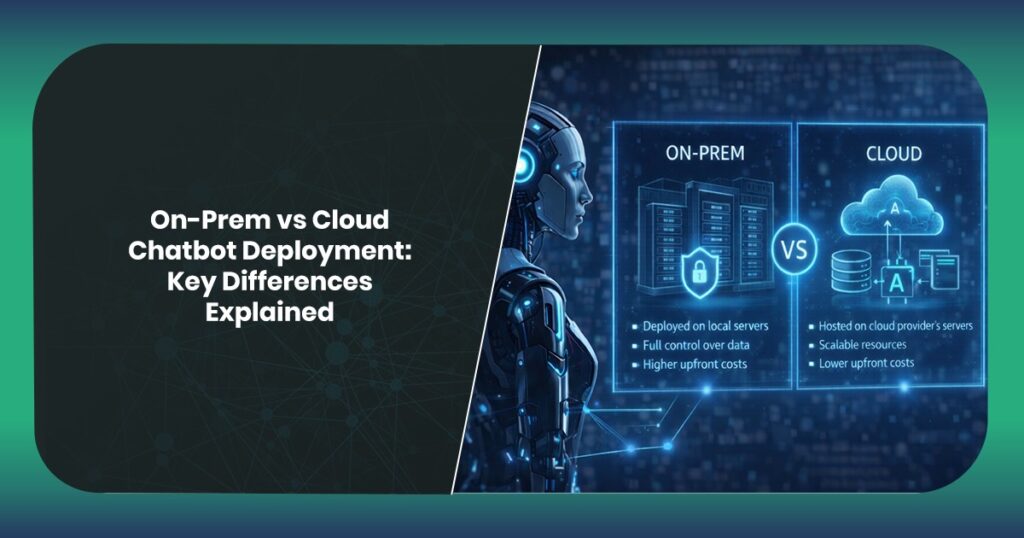How prepared is your organization for the digital demands of healthcare in 2025? The global healthcare custom software development market size was valued at $4,456.5 million in 2024, and is estimated to grow at an annual CAGR of 24.7% from 2024 to 2030.
Healthcare leaders are increasing their investment in custom healthcare software development to reduce administrative strain and improve patient satisfaction. However, now the question isn’t whether you need advanced systems, but who can build them right?
Building an in-house team can increase the expenses, and outsourcing is a feasible option. A custom healthcare software development company creates solutions that fit clinical realities, secure EMR software, user-friendly EHR apps, and HIPAA-compliant platforms that keep sensitive data safe. Clinics also need patient management tools, remote health software, and telehealth solutions connected with hospital systems. The right partner turns technology into smoother care delivery.
If you are looking to partner with a custom software development partner, then, this blog is for you.
Why Does an Enterprise-Grade Healthcare Software Development Company Matters?
Healthcare providers cannot risk unreliable technology when lives are at stake. An enterprise-grade healthcare software development company brings the infrastructure, compliance, and long-term stability needed for safer operations. These firms understand the pressure of high patient volumes and complex data flows. Their systems provide consistent uptime, secure integrations, and reliable upgrades.
Below are four areas where enterprise expertise delivers lasting impact.
1. Reliability in Critical Settings
Every second counts in clinical environments. Software downtime can delay treatment and damage trust, making reliability non-negotiable.
2. Robust Infrastructure
Hospitals manage millions of records, telehealth logs, and diagnostic images. Stable infrastructure and software architecture ensures speed and consistency, but also scalability.
3. Ongoing Maintenance
Healthcare rules change often. A dependable partner delivers updates and patches without disrupting operations. Plus, a maintenance team is required to tackle all the issues promptly.
4. Risk Mitigation
Strong compliance frameworks and audit capabilities protect providers from penalties and safeguard patient information. Custom healthcare software needs to be designed with built-in risk mitigation measures that proactively safeguard both providers and patients. Robust audit capabilities, such as automated activity logs, access tracking, and anomaly detection, are required to provide transparency and accountability.
Top Trends Shaping Healthcare Software in 2025
Healthcare organizations in 2025 expect more than standard functionality from technology partners. A custom healthcare software development company must anticipate new demands, design for compliance, and integrate innovations that reshape care delivery. These trends are already influencing how providers plan their digital strategies.
1. AI-Fueled Innovations
Artificial intelligence is being applied across diagnostics, care planning, and patient support. Hospitals are using predictive models to flag high-risk patients, while diagnostic software helps clinicians detect conditions faster. Virtual assistants embedded in EHR apps reduce documentation time, freeing staff to focus on direct care.
For example, Corewell Health’s research team deployed AI and predictive analytics to identify patients with a high probability of re-admission. With these insights, the interdisciplinary team worked on creating a tailored intervention plan. This helped in reducing readmissions of 200 patients and saved $5 million in associated costs.
2. Telehealth and Remote Monitoring
Telehealth solutions have shifted from emergency adoption during the pandemic to long-term care strategies. Clinics now rely on video consultations, chronic condition monitoring, and remote health software that tracks vitals through connected devices. These systems reduce readmissions and expand access for rural populations.
The remote patient monitoring is well-suited for patients managing chronic conditions. Like, remote glucose monitoring devices can help detect the abnormalities in blood sugar measurements. Some apps that are integrated with RPM devices can provide diet, medications, and nutritional suggestions to maintain normal sugar levels.
Besides, some remote patient monitoring service companies, like Tenovi, can track and analyze the patient usage of lancets and test strips, and automatically ship and refill the blood glucose meter supplies. This ensures that patients have the necessary supplies on hand.
3. Cloud and IoT Integration
The use of connected devices continues to grow. Glucose monitors, cardiac sensors, and sleep trackers all push real-time data into cloud-based platforms. A bespoke healthcare IT provider must ensure that these inputs integrate securely with hospital systems and patient management tools, enabling clinicians to intervene earlier.
For instance, smartwatches and specialized wearables track physiological data, like body temperature (BT) and heart rate (HR), and automatically send the anomalies to the care team or send an alert to the provider’s system to get immediate response.
4. Interoperability Advances
Data exchange is no longer optional. Providers need EMR software that communicates with billing, labs, pharmacies, and imaging centers. Interoperability creates a unified record that supports faster decision-making and lowers administrative burden.
The Ukraine National eHealth System is the best example of large-scale interoperability in custom healthcare software. By integrating 33 regional Electronic Health Record (EHR) platforms, Ukraine created a unified ecosystem that securely manages health data for over 36 million citizens and care providers nationwide.
Using HL7 FHIR standards and shared digital workflows, the system enables real-time access to patient records across hospitals, clinics, and pharmacies, supporting coordinated care and efficient responses to public health crises such as COVID-19.
5. Genomics and Personalized Care
Advances in genomics are making personalized care a practical reality. Clinical app development now supports treatment plans informed by genetic markers. This helps specialists identify the right therapy earlier, reducing trial-and-error treatments and improving patient satisfaction.
For example, genomic sequencing can identify tumor mutations, like HER2 (positive breast cancer), and targeted treatments can be selected such as trastuzumab (Herceptin), pertuzumab (Perjeta), trastuzumab emtansine (Kadcyla), or tyrosine kinase inhibitors like lapatinib and tucatinib, which specifically block or neutralize the HER2 protein. This substantially improves the survival rates and reduces recurrence compared to standard chemotherapy alone.
Why is Amenity Technologies the Right Custom Healthcare Software Development Company?
Selecting the right partner shapes how well technology supports clinical outcomes. Amenity Technologies has established itself as a custom healthcare software development company that understands both compliance and practical use inside hospitals and clinics. The team focuses on creating platforms that adapt to real workflows while staying compliant with regulations. Below are the areas where Amenity Technologies stands out.
1. Clinical-First Approach
Our developers work directly with clinicians to refine processes inside EMR software, EHR apps, and hospital systems. This alignment ensures that the software reflects real patient care routines, rather than forcing staff to adjust to rigid systems.
2. Deep Regulatory Expertise
We design HIPAA-compliant platforms and maintain data practices that follow GDPR and regional standards. This prevents costly penalties and protects sensitive information across multiple points of care.
3. AI-Enabled Tools
Amenity builds diagnostic software and triage tools that use intelligent algorithms for faster decision-making. These applications improve speed in emergencies and optimize resource allocation.
4. Interoperable Architecture
Our systems support API-first structures. This makes integration with telehealth solutions, billing modules, and remote health software seamless, allowing for efficient care coordination.
5. Reliable Support and Innovation
We provide ongoing maintenance that includes compliance updates, security patches, and performance tuning. Clients benefit from updates that keep their systems modern and aligned with new care models.
Conclusion
Selecting a custom healthcare software development company is one of the most important decisions healthcare leaders make in 2025. The right partner builds systems that combine compliance, security, usability, and innovation.
Amenity Technologies delivers solutions that span EMR software, HIPAA-compliant platforms, telehealth solutions, and patient management tools integrated with hospital systems.
With a focus on clinical alignment and long-term support, we ensure technology works where it matters most, improving patient care and strengthening provider operations. Connect with our experts today to discuss your vision for custom healthcare software development.
FAQs
1. What is custom healthcare software development?
It refers to creating applications that match a provider’s exact requirements. A custom healthcare software development company designs systems such as EMR software, EHR apps, telehealth solutions, diagnostic software, and patient management tools that align with clinical and operational workflows.
2. Why choose custom over off-the-shelf healthcare tools?
Custom platforms built by a healthcare software development company adapt to unique workflows, integrate with hospital systems, and meet strict compliance requirements. Off-the-shelf tools often lack flexibility, while custom systems reduce inefficiencies and enhance patient care.
3. How do trends like AI and telehealth affect software specialist requirements?
Modern providers expect custom medtech apps that use AI for predictive analysis, telehealth solutions for remote visits, and remote health software for chronic care monitoring. This requires developers skilled in cloud integration, secure video platforms, and real-time data exchange.
4. How critical is compliance like HIPAA in healthcare software?
Compliance is mandatory. A bespoke healthcare IT provider ensures that HIPAA-compliant platforms and GDPR frameworks protect sensitive data. Without strong compliance, providers risk penalties and patient trust issues.
5. Can small clinics afford custom healthcare software?
Yes. Smaller organizations often start with core modules like patient management tools or EHR apps. Through phased development, the solution expands as needs and budgets grow.
6. What maintenance support should a provider expect post-launch?
Ongoing support includes compliance updates, feature enhancements, bug fixes, and performance optimization. A reliable custom healthcare software development company ensures systems remain secure, updated, and aligned with current healthcare standards.











